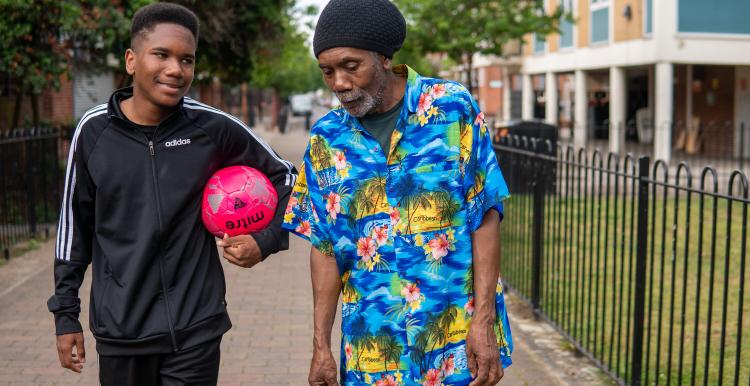Men’s NHS Health Checks in Milton Keynes

The Government’s consultation on the forthcoming Men’s Health Strategy names cardiovascular disease (CVD) a “big killer” and a priority for improvement. It’s not hard to see why. CVD is the leading cause of death among men in England, and men are more likely than women to die prematurely from it.
One of the key tools the Government has chosen to prevent, detect, and manage CVD is the NHS Health Check. However, new Healthwatch England research shows that too many men - both in Milton Keynes and nationally - are missing out on their check. This is despite legislation requiring local authorities to invite 100% of the eligible population for a Health Check across five years.
The toll of cardiovascular disease on men
CVD covers a range of heart and circulation problems, from inherited conditions to those that develop later in life, such as coronary heart disease - often from unhealthy behaviours, including smoking, drinking and obesity. The most accurate data indicates that in 2023, of the 38,000 people in England who died from CVD under the age of 75, 26,000 (68%) were men.
Geography and deprivation make a big difference. Between 2021 and 2023, the premature mortality rate for CVD in Blackpool was 3.2 times higher than in Hart. People aged 25–44 in the north of England are 47% more likely to die from heart and circulatory diseases than those in the south. CVD is the single biggest driver of the life expectancy gap between the most and least deprived areas.
How the NHS Health Check works
Introduced in 2009, the NHS Health Check should be offered every five years to adults aged 40–74 without a pre-existing long-term condition. However, the findings below indicate that this is not happening for all men.
The check is usually carried out by a nurse at a GP surgery and includes checks on blood pressure, weight, cholesterol, and sometimes blood sugar. The results are used to calculate your risk of developing CVD, and you may be given lifestyle advice, referred to your GP, or offered treatment.
While longer term outcomes data is needed, research shows the programme helps detect risk factors earlier and reduces CVD risk overall. It’s commissioned by local authorities and funded through public health budgets.
The data gap
While the NHS publishes overall data on uptake of the Health Check, it hasn’t published a breakdown of uptake by sex for five years, despite men’s higher risk of CVD. The last figures, from 2017/18, showed women were more likely to attend than men (44% vs 38%).
Healthwatch research aimed to plug this gap, especially after a committee of MPs earlier this year criticised the lack of demographic data on Health Check attendance.
Listening to men
To understand what men want from health services and where the gaps are, Healthwatch England commissioned a nationally representative survey.
What men said
Healthwatch England polling found:
- Only 37% of eligible men said they had ever been invited to an NHS Health Check, and just 31% had been invited in the past five years.
- The proportion of men who had been invited for NHS Health Checks in the last five years was fairly consistent across demographic groups, with the exception of those living in urban areas (32% invited in the last five years) and those living in rural areas (21%).
- Only 59% of men said that they were aware of the Health Check, and less than one in ten men (8%) correctly identified the Health Check eligibility.
- Around 60% of men attended every Health Check they were invited to and most rated the experience positively.
- 69% of men said they would be likely to attend in the future, rising to 85% among those who had been invited before.
Digging into data
Inequalities in uptake
Some groups of men were less likely to say they’d attend in future, including:
- Men struggling financially (63%)
- LGBTQI+ men (62%)
- Younger men aged 18–24 (59%)
What makes men attend?
Men said they’d be more likely to attend if:
- They received a call from their doctor at their GP (41%) or another member of staff at their GP surgery (31%)
- They had information about the Health Check before age 40 (23%)
- They could do some tests at home (22%)
- Get results virtually (18%).
Younger and ethnic minority men were more likely to be persuaded by receiving information about the Health Check at their workplace, hearing a public figure share their experience attending an NHS Health Check, flexibility and early awareness.
Read more about the poll on the Healthwatch England website.

